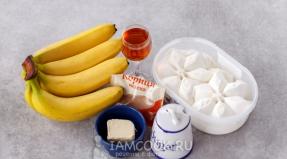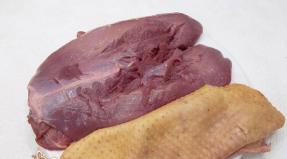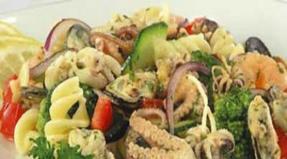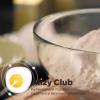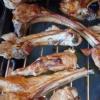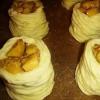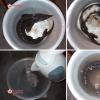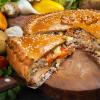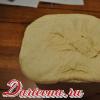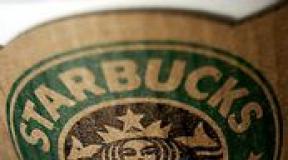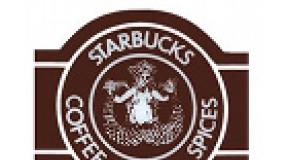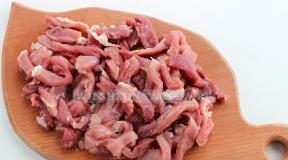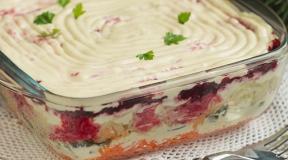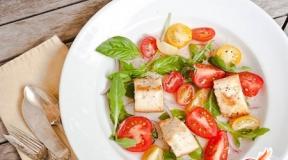What kind of fish should not be used in school meals. Buying food: step by step instructions
This document was developed in accordance with the Concept of State Policy in the Field of Healthy Nutrition of the Population of the Russian Federation, which indicates that the organization of nutrition for schoolchildren is one of the priority areas for the activities of health authorities, the State Sanitary and Epidemiological Service and educational authorities, as well as in accordance with the order of the President of the Russian Federation, the Decree of the Government of the Russian Federation and the order Head of the Federal Service for Supervision of Consumer Rights Protection and Human Welfare N 54 dated February 27, 2007 "On measures to improve sanitary and epidemiological, supervision of catering in educational institutions."
The sale of products through school canteens, along with hot school breakfasts and lunches, is the most important factor in meeting the needs of children for basic nutrients and energy. In this regard, one of the important conditions for optimizing the nutrition of children is the formation of a range of buffet products.
This range of food products recommended for sale through the school buffet system, developed by the State Research Institute of Nutrition of the Russian Academy of Medical Sciences, Rospotrebnadzor and the Moscow Foundation for the Promotion of the Sanitary and Epidemiological Welfare of the Population, is based on modern ideas about optimal nutrition and includes mainly products with the highest nutritional value. At the same time, the list divided products into products with higher and lower nutritional value. The recommended range of products includes predominantly individually packaged ready-to-eat food products of industrial production, which ensures their hygienic safety.
Along with the recommended products, the assortment includes a list of food products not recommended for sale in school canteens, which include many products that are popular among schoolchildren, but are characterized by low nutritional value.
The recommended range of food products for sale in school canteens.
| N p / p | Name of food products | Weight (volume) of a serving, packaging | Notes |
|---|---|---|---|
| Milk and dairy products | |||
| 1. | Pasteurized or sterilized milk, incl. fortified* | in small package | with m.d.zh. 2;5%, 3.2%, 3.5% |
| 2. | Milk drinks, cocktails, puddings, desserts of industrial production, thermized | in small package | with a mass fraction of sugar not more than 10% |
| 3. | Fermented milk products (kefir, biokefir, fermented baked milk, yogurt, etc.) with viable microflora* | in small package | with m.d.zh. 2.5%, 3.2%, 3.5% and sugars, not more than 10%, not subjected to heat treatment; if there is a refrigerated counter in the buffets |
| 4. | Yogurt products (yogurt, fruit, etc.) | in small package | with m.d.zh. not more than 3.5% and sugars not more than 10% |
| 5. | Cream | in small package | with m.d.zh. 10% |
| 6. | Different kinds of ice-cream | in small package | |
| 7. | Cheese curds in assortment | in the presence of a refrigerated counter | |
| 8. | Curd products in assortment, incl. fortified* | in portion pack | with m.d.zh. no more than 9%, using a refrigerated counter |
| 9. | Hard cheeses (for making sandwiches)* | in the presence of a refrigerated counter | |
| 10. | Processed cheeses (mild varieties, without spices) | in small package | with m.d.zh. no more than 30-35%, in the presence of a refrigerated counter |
| Fruits and vegetables | |||
| 11. | Fresh fruits (apples, pears, tangerines, oranges, bananas, kiwi, etc.)* | washed | |
| 12. | Industrial fruit and vegetable salads | in individual packaging | in the presence of a refrigerated counter |
| 13. | Fresh vegetables (tomatoes, cucumbers)* | washed | |
| 14. | Canned fruits and vegetables, industrial fruit and vegetable purees | in small package | |
| Sausages | |||
| 15. | Sausages, sausages for children and sausages, (specialized types for school meals), incl. in the test | ||
| 16. | Cooked-smoked sausages (for making sandwiches), specialized types for school meals | in the presence of a refrigerated counter | |
| Beverages | |||
| 17. | Fruit juices and nectars (fruit) and vegetable natural industrial production * | in small package | |
| 18. | Fortified industrial drinks, ready-made or dry instant (instant)* | ||
| 19. | Bottled drinking water - mineral drinking, non-carbonated and lightly carbonated | in small package | |
| 20. | Tea, cocoa or coffee drink, rosehip drink | ||
| 21. | Juice-containing soft drinks, including those fortified with micronutrients, with a reduced sugar content | ||
| 22. | Kissels fortified from instant concentrate | preparation immediately before implementation | |
| Bakery products | |||
| 23. | Bread (rye-wheat, grain with bran), as well as specialized types of bakery products enriched with micronutrients | bread "Molodetsky", "School", "Student", etc., buns "School" | |
| 24. | Flour baked culinary products (pies with jam, cabbage, potatoes, rice, etc.) | in assortment | |
| 25. | Biscuits, crackers, biscuits, incl. fortified* | in assortment | |
| 26. | Homemade sweet dishes (baked apples, apples stuffed with fruit, vegetable and cereal fillings, charlotte, fruit and milk jelly) | in the presence of a refrigerated counter, the implementation period is no more than 3 hours | |
| 27. | Jam, jam, jam, honey | in portion pack | in assortment |
| 28. | Wheat and rye croutons | in small package | no hot spices |
| 29. | Popcorn | in small package | |
| 30. | School pizza in assortment | subject to the provision of heat treatment in a school cafeteria | |
| 31. | Dry breakfasts (cereals, potatoes), incl. fortified | in portion pack | in assortment |
| Confectionery products, including those enriched with vitamins and microelements | |||
| 32. | Waffles Gingerbread Pastila Marshmallow Marmalade Chocolate Chocolates | in individual packaging | in assortment |
| Nuts and dried fruits | |||
| 33. | Nuts, dried fruits, shelled oilseeds, cereal flakes, dried fruits and mixtures thereof* | in portion pack | |
| Sugar in portions | |||
| Other products | |||
| 34. | Chicken broth from a natural concentrate of industrial production | Preparation immediately before implementation | |
_____________________________
* - products with a higher nutritional value, preferred for sale
2. Hamburgers, cheeseburgers.
3. Sucking and chewing sweets with a high sugar content.
4. Highly carbonated drinks.
5. Flour fried culinary products.
6. Koumiss and other fermented milk products containing ethanol (more than 0.5%).
7. Non-alcoholic tonic liqueurs.
8. Natural coffee.
Guidelines N 0100 / 8606-07-34 "Recommended assortment of food products for sale in school canteens" (approved by the Federal Service for Supervision of Consumer Rights Protection and Human Welfare of 08.24.2007)
Designed by:
State Research Institute of Nutrition RAMS
Academician of the Russian Academy of Medical Sciences, prof. Tutelyan V.A., prof. Horse I.Ya., Ph.D. Volkova L.Yu., Dimitrieva S.A., Ph.D. Kopytko M.V., Larionova Z.G.
Federal Service for Supervision of Consumer Rights Protection and Human Welfare Aksenova O.I., Yanovskaya G.V.
Moscow Foundation for the Promotion of Sanitary and Epidemiological Welfare of the Population Ph.D. Tobis V.I., Otrishko M.G.
This document is intended for physicians of state sanitary and epidemiological supervision bodies, pediatricians, dietitians, specialists from bodies and institutions of Rospotrebnadzor, directors and deputy directors for social issues of educational institutions, specialists from enterprises of various forms of ownership that organize meals for students in schools and others. specialists involved in catering for students of educational institutions.
font size
RESOLUTION of the Chief State Sanitary Doctor of the Russian Federation dated July 23, 2008 45 ON THE APPROVAL OF SANPIN 2-4-5-2409-08 (together with ... Relevant in 2018
Appendix 7
1. Food products with expired shelf life and signs of poor quality.
2. Leftover food from the previous meal and food prepared the day before.
3. Fruit and vegetable products with signs of spoilage.
4. Meat, offal of all types of farm animals, fish, poultry that have not passed veterinary control.
5. Offal, except for the liver, tongue, heart.
6. Ungutted bird.
8. Eggs and meat of waterfowl.
9. Eggs with contaminated shells, with a notch, "tek", "battle", as well as eggs from farms that are unfavorable for salmonellosis.
10. Canned food with broken cans, bombed, "crackers", cans with rust, deformed, without labels.
11. Cereals, flour, dried fruits and other products contaminated with various impurities or infected with granary pests.
12. Any food products of home (not industrial) production.
13. Cream confectionery (cakes and cakes).
14. Brawns, trimmed meat products, diaphragms; head pulp rolls, blood and liver sausages.
15. Cottage cheese from unpasteurized milk, flask cottage cheese, flask sour cream without heat treatment.
16. Curdled milk - "samokvas".
17. Mushrooms and products (culinary products) prepared from them.
19. Milk and dairy products from farms that are unfavorable for the incidence of farm animals, as well as those that have not undergone primary processing and pasteurization.
20. Raw smoked meat gastronomic products and sausages.
21. Dishes made from meat, poultry, fish that have not undergone heat treatment.
22. Deep-fried foods and products.
23. Food products not provided for in App. N 9.
24. Vinegar, mustard, horseradish, hot peppers (red, black) and other hot (hot) seasonings.
25. Hot sauces, ketchups, mayonnaise, canned snacks, pickled vegetables and fruits.
26. Natural coffee; tonic, including energy drinks, alcohol.
27. Cooking fats, pork or lamb fat, margarine and other hydrogenated fats.
28. Apricot kernel, peanut.
29. Carbonated drinks.
30. Dairy products and ice cream based on vegetable fats.
31. Chewing gum.
32. Koumiss and other fermented milk products containing ethanol (more than 0.5%).
33. Caramel, including candy.
34. Canned snacks.
35. Aspic dishes (meat and fish), jellies, herring mincemeat.
36. Cold drinks and fruit drinks (without heat treatment) from fruit and berry raw materials.
38. Naval pasta (with minced meat), pasta with chopped egg.
39. Fried eggs.
40. Patés and pancakes with meat and cottage cheese.
41. First and second courses from/based on instant dry food concentrates.
The Yamal Rospotrebnadzor has approved a list of products that can be sold through vending machines in schools in Salekhard. Writes "URA.Ru".
Today it became known that the assortment was agreed upon and the list of goods included almost everything that parents fought against - bakery products, cookies, waffles, gingerbread, confectionery, bars, chocolate. Rospotrebnadzor also allows the sale of juice, dairy products and fruits. The list was approved by the deputy chief health officer of the district Elmira of Kharkov.
The list was at the disposal of "URA.Ru"
"URA.Ru" notes that at the last meeting of the Legislative Assembly of the district, the head of the Yamal Rospotrebnadzor, Lyudmila Nechepurenko, said that the department allows selling only water, juices and dairy products in schools.
The list was compiled for a vending machine in Salekhard's Obdorsk gymnasium, which was supposed to be removed after a parent's interview. Perhaps the vending machine will continue to work.
As REGNUM reports, activist parents often oppose vending machines in schools. Parents from Orenburg, Magnitogorsk, St. Petersburg spoke out against vending machines with chocolate and carbonated drinks. In Lipetsk, vending machines were installed as a pilot project - and immediately aroused the indignation of parents.
Earlier we wrote about the ban on vending machines in schools in Moscow.
Activists note that products that are harmful to children are sold in vending machines, goods are sold at an inflated price.
Representatives of Rospotrebnadzor note that this is primarily the fault of the school administration, since buffets and vending machines should sell products approved by the department. And the authorities of St. Petersburg issued a special decree - the price of goods in the machine should not exceed 25% of the purchase price.
In addition, representatives from education suggest thinking about those children who stay at school after the canteen closes (extension, mugs) and about teachers who work until late in the evening. It is better not to ban school vending machines, but to regulate their activities, conduct surveys of parents, coordinate the assortment.
The company "KamVend" has been operating since 2012. The main specialization is the sale of equipment for maintaining the drinking regime at large industrial enterprises in Russia.
Product range
which are not allowed to be used in catering at school
When catering for schoolchildren, one should be guided by the requirements of SanPiN 2.4.5.2409-08. This document contains a list of products and dishes prohibited for sale in public catering organizations of educational institutions.
First of all, of course, it is not allowed to feed students with expired products and signs of poor quality, as well as food prepared the day before or left over from a previous meal.
From meat and fish products, meat, offal of all types of farm animals, fish and poultry that have not passed veterinary control cannot be used; offal (except liver, tongue and heart); gutted poultry; meat of wild animals and waterfowl. It is forbidden to cook meat and fish aspic dishes, jellies, herring mincemeat; uncooked meat, poultry and fish dishes, as well as pâtés, empanadas and navy-style pasta with minced meat. You can not feed children with raw smoked deli meats and sausages, as well as brawn, trimmed meat products, head pulp rolls, blood and liver sausages.
When preparing first and second courses, it is forbidden to use fruit and vegetable products with signs of spoilage; canned food with violation of the tightness of cans; cereals and other products contaminated with various impurities or infected with barn pests; cooking fats, lard or lamb, margarine and other hydrogenated fats. For frying semi-finished products, use baking sheets with a special coating that meets safety requirements and does not require lubrication with fat (oil). You can not feed children mushrooms; deep-fried foods; pickled vegetables and fruits; meals based on instant dry food concentrates; as well as any food products of home (not industrial) production. It is forbidden to cook cold soups as first courses, including okroshka.
Special requirements apply to eggs and dishes from them. It is not allowed to use in cooking waterfowl eggs, eggs with contaminated shells, notched, “tek”, “boy”, as well as eggs from farms that are unfavorable for salmonellosis. You can not cook fried eggs and pasta with a chopped egg. Eggs are processed in a separate room or in a specially designated place of the meat and fish shop, observing the following procedure:
- Treated in a 1-2% warm solution of soda ash.
- Treated in a 0.5% solution of chloramine or other approved disinfectants.
- Rinse with running water for at least 5 minutes.
- Spread in a clean labeled dish.
It is forbidden to use vinegar, mustard, horseradish, red and black pepper, hot sauces, ketchups, mayonnaise and any hot seasonings as seasonings.
From dairy products in the nutrition of children, flask cottage cheese and cottage cheese from unpasteurized milk cannot be used; flask sour cream without heat treatment; dairy products and ice cream based on vegetable fats; milk and dairy products from farms that are unfavorable for the incidence of farm animals, as well as those that have not undergone primary processing and pasteurization. It is forbidden to cook curdled milk - "samokvas", pancakes with cottage cheese, koumiss and other fermented milk products with an ethanol content of more than 0.5%.
As drinks, children should not be given kvass, natural coffee, cold drinks and fruit drinks (without heat treatment) from fruit and berry raw materials, carbonated, alcoholic and tonic drinks, including energy drinks.
In addition, you should be aware that cream confectionery products (cakes and cakes), peanuts, chewing gum and caramel, including candy, should not be sold at the school.
Also, when catering, it is advisable to be guided by a list of foodstuffs that are not recommended for sale in school canteens by specialists from the State Research Institute of Nutrition of the Russian Academy of Medical Sciences, Rospotrebnadzor and the Moscow Foundation for the Promotion of Sanitary and Epidemiological Welfare of the Population. The list contains many foods that are popular among schoolchildren, but are characterized by low nutritional value.
In addition to the products already listed, this list includes chips, hamburgers and cheeseburgers, sucking and chewing sweets with a high sugar content.
Pay attention to the fact that it is not recommended to sell products containing hormones, hormone-like substances and antibiotics in school canteens. It is also undesirable to use tonic biologically active food supplements (BAA) containing eleutherococcus, ginseng, Rhodiola rosea or other similar components that affect the growth of body tissues, and products produced using these additives.
When catering in kindergarten, one should be guided by the requirements of SanPiN 2.4.1.1249-03. It should be noted that the list of products that can not be consumed by preschool children is almost identical to the one above. Additionally, it should include a ban on the use of butter with a fat content below 72%.
official source
- Sanitary and epidemiological requirements for catering for students in general education institutions, institutions of primary and secondary vocational education. SanPiN 2.4.5.2409-08, approved. Decree of the Chief State Sanitary Doctor of the Russian Federation dated July 23, 2008 No. 45. Pp. 8.4, 8.14, appendix 7
- Sanitary and epidemiological requirements for the device, content and organization of the mode of operation of preschool educational institutions. SanPiN 2.4.1.1249-03, approved. Chief State Sanitary Doctor of the Russian Federation 03/25/2003. P. 2.10
What you need to know about the range of products for supplementary nutrition of schoolchildren? How to form it correctly?
The range of additional nutrition for children and adolescents includes mainly ready-to-eat industrial products in individual packaging.
Preference should be given to foods with high nutritional value - sources of protein, vitamins, polyunsaturated fatty acids, etc.
Fresh fruits (apples, pears, tangerines, oranges, bananas, etc.) should always be on sale. They are sold individually, pre-washed. Fruits are sold in packaging made of polymeric materials.
To organize a drinking regimen, bottled non-carbonated drinking water (from the table water group) must be available for sale. Water is sold in consumer containers with a capacity of not more than 500 ml. Please note that it is not allowed to spill drinks in the buffet.
The assortment must include various juices (fruit and vegetable) in individual consumer packaging with a capacity of 0.2-0.5 liters, as well as dry instant drinks (for example, Golden Ball, Cedevita, Vitastart, etc.) . The latter should be prepared no earlier than 3 hours before the sale. The sale of carbonated drinks is not allowed.
It is recommended to include rosehip broth (a source of vitamin C) and various hot drinks, including tea, tea with milk, coffee drink or cocoa with milk, in the range of buffet products. Hot drinks are prepared immediately before the sale.
Dairy products (except sterilized) are sold with the obligatory use of a refrigerated counter. The assortment should include dairy products with a fat content of 2.5% and 3.5% in individual consumer packaging (the volume of which is designed for one serving), as well as sour-milk drinks with a fat content of up to 3.2%.
You can use drinks such as "Bififrut", "Acidolact", "Acipol", "Tonus", kefir, fermented baked milk, yogurt, acidophilus, etc.
As a source of full-fledged milk protein, commercially produced cottage cheese products (except curd cheese) are sold in industrially sealed portion packaging. The capacity of such products should not exceed 125 g, fat content - 9%.
You can sell hard rennet cheeses for making sandwiches in school buffets. They are sold in an assortment in consumer packaging.
There must be at least 1-2 types of bakery products on sale. Preference should be given to bakery products enriched with vitamins (vitamin-mineral mixtures). In addition to fortified, you can sell other bakery products:
Buns "October", "Kolobok" (GOST 27844-88); buns "Lada", "Asterisk", "Appetizing" (TU 9115-008-05747152-92-95 with change 1); buns "Oktyabrenok", "Pink", "Altai", "Dairy", "Breakfast", "Amber", "Useful", "Rustic", "Curd", "Ukrainian",
"For tea", "Kharkovchanka", "New", "Space", "Student" ("Collection of technological standards for the production of flour confectionery and bakery products", 1999).
In a limited assortment, it is possible to sell flour confectionery products of industrial production (gingerbread, waffles, cookies, etc.), as well as own production in industrial consumer packaging, weighing no more than 50 g. It is forbidden to sell products with cream.
It is also allowed to sell sugar confectionery products (toffee, marshmallows, sweets (except caramel)). They are sold in consumer packaging, weighing up to 25 g. Preference should be given to confectionery products enriched with micronutrients.
Chocolate (based on natural cocoa fats) can sometimes be included in an additional range of food products for free sale.
If you have the necessary commercial equipment (bain-marie, refrigerated counters), it is advisable to include dishes and culinary products of your own production in the assortment. At the same time, it is important to avoid repetitions of the same name (or prepared from the same semi-finished products) dishes and products on adjacent days.
Salads and home-made vinaigrettes (serving size from 30 to 200 g), as well as sandwiches with half-smoked sausage ("Liceyskaya", "Gulliver", etc.) and hard cheese (30/30 g) are recommended for sale in buffets . The term for the implementation of these products is 3 hours from the moment of preparation with the obligatory use of refrigerated counters. Salads are dressed directly upon sale.
Of the hot dishes, sausages (children's sausages) baked in dough are recommended; boiled sausages (children's sausages) or boiled children's sausage with a side dish; pizza school (weighing 50-100 g). The implementation period of these products is no more than 3 hours with the obligatory use of food warmers. Sausages (baby sausages) can be cooked immediately before sale using microwave ovens.
You can also sell hot sandwiches (with cheese, boiled or semi-smoked sausage, etc.). Hot sandwiches are prepared immediately before sale using convection heating (convection machines) or microwave ovens.
All food products used for organizing additional meals for students must comply with the requirements of sanitary standards. This fact must be confirmed by the original certificate of quality and safety, as well as the original or a copy of the sanitary and epidemiological conclusion of the State Sanitary and Epidemiological Supervision bodies based on the results of the sanitary and epidemiological examination. All legal entities (individual entrepreneurs) organizing additional meals for students must have these documents.
The assortment of additional meals is approved by the head of the educational institution and (or) the head of the catering organization of the educational institution annually before the start of the academic year. Then it is coordinated with the territorial body of the State Sanitary and Epidemiological Supervision.
official source
- Sanitary and epidemiological requirements for catering for students in general education institutions, institutions of primary and secondary vocational education. SanPiN 2.4.5.2409-08, approved. Decree of the Chief State Sanitary Doctor of the Russian Federation dated July 23, 2008 No. 45. Pp. 6.31, 6.33, appendix 9
- Hygienic requirements for the safety and nutritional value of food products. SanPiN 2.3.2.1078-01, approved. Chief State Sanitary Doctor of the Russian Federation November 6, 2001 (as amended on July 16, 2008)
We remind you that not so long ago a draft state standard for children's nutrition was released. The new standard provides that in all educational institutions for children and adolescents from 7 to 18 years old who spend more than 4 hours there, and these are schools, lyceums, etc., additional meals should be provided in addition to organizing basic meals (breakfasts, lunches, afternoon snacks). or dinners in canteens). That is, not an organized meal at breaks, but a “snack” available to all children at their request. Thus, school canteens and vending machines in schools are finally legalized. It turns out that it is possible and even necessary to install vending machines. True, the list of products sold in the school vending machine is strictly regulated.
So, in school cafeterias and in vending machines there should be at least 20-30 types of products. In turn, they belong to different groups according to their consumer properties and nutritional value.
“The basis of the range of food products sold through vending machines should be food products with increased nutritional and biological value, enriched with essential nutrients (vitamins, minerals, polyunsaturated fatty acids, protein),” the document says.
This is about snack machines and food machines. From now on, in schools (although it was not particularly prohibited before), it is possible to install vending machines for the sale of drinks. Natural coffee cannot be sold. Here is what the new recommendations say about this: “The sale of hot drinks using vending machines is carried out by students of secondary school age and older, only in rooms equipped for eating.” In special heat-resistant disposable cups with a capacity of up to 200 ml. When selling products through vending machines in schools, remember that all food products, including culinary products, used in the nutrition of students and pupils in an educational institution must comply with the hygienic requirements for the quality and safety of food products in force in the Russian Federation in accordance with sanitary and epidemiological rules and standards SanPiN 2.3.2.1940-05, SanPiN 2.3.2.1078-01
What can be sold in vending machines in schools?
It should be noted that from now on, the formation of an assortment of food products for additional nutrition of children and adolescents is carried out by compiling and approving by an educational institution (or a school catering enterprise) assortment lists of food products for free sale (“buffet products” and in particular in vending machines), compliance with the mandatory assortment minimum (basic list). The main list is shown below.
Where should the vending machine be located?
Counters, bar and buffet counters, and other outlets for the sale of buffet products can be located in the dining halls of educational institutions or in separate, specially allocated rooms. The latter must be equipped with washbasins and electric towels in accordance with the requirements of sanitary regulations.
Places for the sale of food products for additional nutrition of children and adolescents should be equipped with special furniture for eating - dining tables, bar counters, special tables for standing meals, etc.
So it is written in the project, in practice, when installing a vending machine, and they can be attributed to other points for the sale of buffet products, it will most likely turn out differently, but it is always possible to adjust the installation to the standards. And do not forget that all industrial products sold must necessarily have consumer packaging with a label inscription (marking) in accordance with the requirements of current legislation.
The beverage vending machine can sell teas, cocoa, coffee drinks, herbal teas.
Requirements for the sale of food products in educational institutions using vending machines
In educational institutions, trade in food products using vending machines is allowed, taking into account the requirements of SanPiN 2.4.5.2409-08.
The basis of the range of food products sold through vending machines should be food products with increased nutritional and biological value, enriched with essential nutrients (vitamins, minerals, polyunsaturated fatty acids, protein).
The sale of hot drinks using vending machines is carried out by students of middle school age and older, only in rooms equipped for eating.
Hot drinks are sold in special heat-resistant disposable cups with a capacity of up to 200 ml (including using special vending machines).
Assortment list of food products for automated trading through vending machines
1. Sterilized drinking milk fortified, including with the addition of natural fruit and berry fillers or juices (fortified milkshakes), with a mass fraction of fat up to 3.5%, not requiring special storage conditions (shelf life is set for temperatures up to +25 ° C), in aseptic packaging with a net weight of up to 250 g.
2. Sterilized (terminated) products based on yogurt, including those with the addition of natural fruit and berry fillers or juices, with a mass fraction of fat up to 4%, which do not require special storage conditions (shelf life is set for temperatures up to + 25 ° C)
3. Curd products (products), including those with the addition of natural fruit and berry fillers or juices, with a mass fraction of fat up to 10%, that do not require special storage conditions (shelf life is set for temperatures up to + 25 ° C), in individual consumer packaging with a net weight of up to 125 g, with plastic spoons.
4. Non-carbonated drinking water of the highest category in a package with a capacity of up to 0.5 liters.
5. Non-alcoholic, non-carbonated, fortified or juice-containing drinks (except tonic) in aluminum cans, polypropylene or PET bottles with a capacity of up to 0.5 liters.
6. Natural fruit and vegetable juices and nectars (reconstituted fortified or direct extraction, without salt, preservatives and artificial flavors) in individual consumer packaging made of polymeric or combined material with a capacity of up to 0.33 liters.
List of products that should not be contained in ready-made baby food for school-age children
1. table salt over 0.9% in meat semi-finished products, over 1.2% - in
2. canned food, over 1.8% - in sausages; nitrites over 0.003% in sausages;
3. in fish semi-finished products, canned food - food table salt over 0.8%;
4. in meat and fish semi-finished products, sausages - hot spices;
5. in confectionery - alcohol, natural coffee, apricot kernels,
6. cooking and confectionery fats, sodium pyrosulfite;
Finally, we note that poor maintenance of the vending machine at school (dirt, dust, insects) is unacceptable. It is also unacceptable to sell products with an expiring shelf life, products in damaged packaging and containers. Maintenance of the vending machine by personnel who do not have a sanitary book. Improper storage of products in the machine and in the warehouse. Remember, despite the fact that only sharks swim in the business, you are primarily selling your products to children. Which you probably have or will have.
